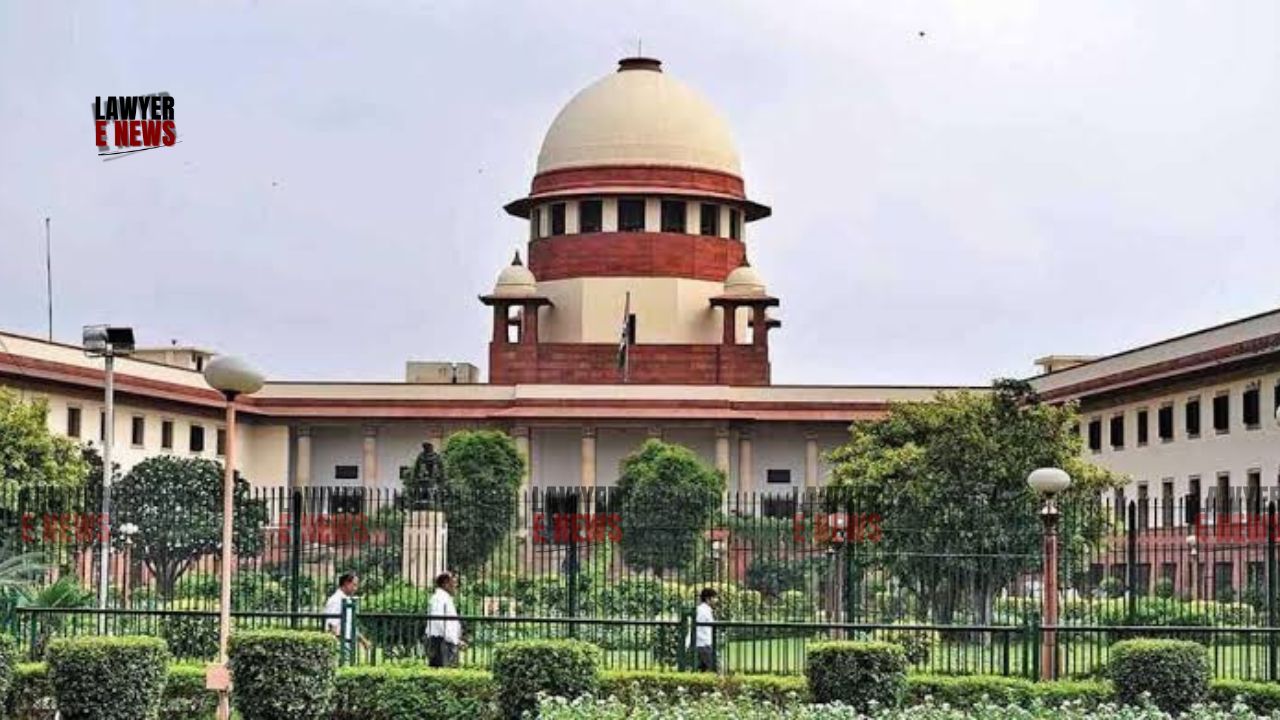-
by Admin
15 February 2026 5:35 AM



Supreme Court of India delivered a pivotal ruling in the case of M/s Ultra-Tech Cement Ltd. vs. Mast Ram & Ors. (Civil Appeal No. 10662 of 2024). The Court clarified that Jaiprakash Associates Ltd. (JAL), not Ultra-Tech Cement Ltd., is liable to pay compensation under a Supplementary Award issued by the Land Acquisition Collector (LAC). The ruling settles the dispute over which entity is responsible for paying landowners compensation after the cement project was transferred from JAL to Ultra-Tech under a Scheme of Arrangement. The Court held that Ultra-Tech cannot be held liable as the acquisition proceedings began before the project’s transfer.
The case stems from land acquisition by the Himachal Pradesh Government in 2008 to establish a safety zone for a cement project managed by JAL. As part of these proceedings, a Supplementary Award for damages to structures and crops was issued in 2022. However, between 2008 and 2022, the cement project was transferred from JAL to Ultra-Tech Cement under a Scheme of Arrangement approved by the National Company Law Tribunal (NCLT). The High Court directed Ultra-Tech to pay the compensation and recover it from JAL, leading to this appeal.
The primary question before the Court was whether Ultra-Tech Cement Ltd., as the new project owner, or Jaiprakash Associates Ltd., the original owner, should bear the burden of compensation awarded under the Supplementary Award.
Who is liable for compensation? The legal responsibility for compensation associated with land acquisition initiated before the transfer of the cement project.
Land Ownership and Return of Land: Whether the acquired land should be returned to the landowners under Section 101 of the 2013 Land Acquisition Act due to alleged non-utilization.
The State’s Role: Whether the State of Himachal Pradesh had fulfilled its constitutional duty under Article 300-A of the Constitution in ensuring timely payment to landowners.
The Court concluded that the High Court erred in directing Ultra-Tech to pay the compensation. The Scheme of Arrangement between JAL and Ultra-Tech made clear that liabilities existing before the project’s transfer remained with JAL. The acquisition process began before the Scheme's Effective Date of June 29, 2017, meaning JAL remained liable for compensation related to the acquired land.
"Liabilities associated with the land acquisition, including compensation, remain with Jaiprakash Associates Ltd. under the Scheme of Arrangement. The transfer of the cement project did not absolve JAL of its responsibilities under the Supplementary Award." (Para 27, 32)
The Court also dismissed JAL's contention that the land should be returned to the original landowners under Section 101 of the 2013 Land Acquisition Act. The land, acquired for use as a safety zone, was being utilized for that purpose, rendering the claim for return of the land inapplicable.
JAL’s Liability: The Court clarified that JAL, having accepted the liability for the compensation determined under the original 2018 Award, could not now shift responsibility to Ultra-Tech. Ultra-Tech was not liable since the land acquisition proceedings started before the transfer of ownership, and the liabilities were excluded from the Scheme of Arrangement.
No Return of Land: On JAL’s plea to return the land, the Court highlighted that the land was being utilized as a safety zone, fulfilling the purpose of acquisition. Therefore, Section 101 could not apply since the land was not unutilized.
State’s Role under Article 300-A: The Court criticized the State of Himachal Pradesh for not ensuring timely compensation to the landowners. It reaffirmed that under Article 300-A, the State has a duty to protect property rights, including ensuring compensation is paid promptly in land acquisition matters.
"The State failed to ensure timely payment of compensation, thereby contravening the welfare principles enshrined in Article 300-A of the Constitution." (Para 45)
The Supreme Court allowed the appeal, setting aside the Himachal Pradesh High Court’s order. The Court directed the State of Himachal Pradesh and the Land Acquisition Collector to pay the landowners Rs. 3.05 crore in compensation within 15 days, with 9% interest from the date of the Supplementary Award. The State can recover this amount from JAL, which was ultimately responsible for the payment.
Date of Decision: September 20, 2024
M/s Ultra-Tech Cement Ltd. vs. Mast Ram & Ors.
